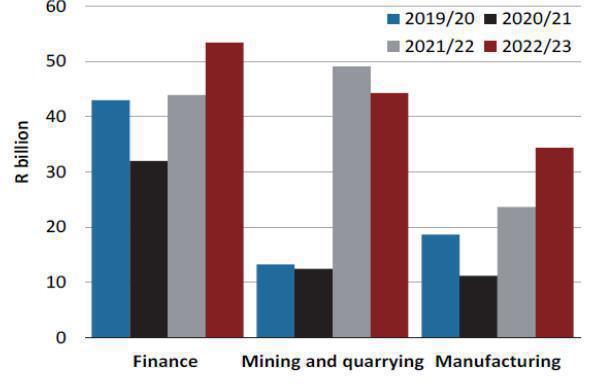The fiscal position has improved since the 2022 Budget as a result of better-than-expected revenue collection. Government will use this revenue to increase spending in health, education and local government free basic services, infrastructure, and security and safety. At the same time, it will narrow the budget deficit, and address fiscal and economic risks posed by Denel, SANRAL and Transnet. Government remains committed to returning the public finances to a sustainable position.
Key issues:
- Government is returning the public finances to a sustainable position. Net loan debt – gross loan debt less cash balances – will stabilise at 69 per cent of GDP in 2024/25.
- Main budget non-interest spending will grow slightly above consumer price index (CPI) inflation in the outer two years of the medium-term expenditure framework (MTEF) period. More resources are added to health, education,local government free basic services, infrastructure, and safety and security.
- In a volatile global environment, the fiscal strategy reduces risks to the economy and the public finances over the medium term. Government will use a portion of revenue improvements to narrow the budget deficit and keep debt stabilisation on track. In-year allocations are made to mitigate economic and fiscal risks associated with Denel, the South African National Roads Agency Limited (SANRAL) and Transnet.
- To ensure Eskom’s long-term financial viability, government plans to take over a portion of the entity’s R400 billion debt.
- The consolidated budget deficit is projected to narrow from 4.1 per cent of GDP in 2023/24 to 3.2 per cent of GDP in 2025/26.
- Risks to the fiscal outlook include further slowdowns in economic growth, higher public-service wage costs, contingent liabilities of state-owned companies and the introduction of unfunded spending programmes
Provisional Corporate Income Tax collections by sector*


